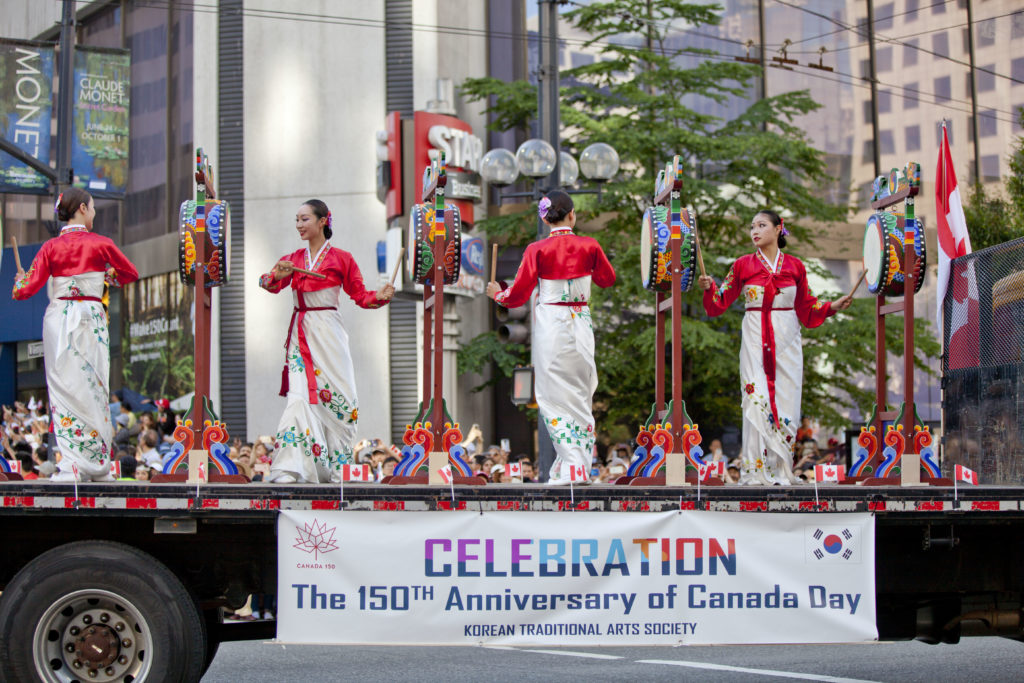The Peninsula
South Korea’s Diaspora Engagement
Published September 1, 2020
Category: Korea Abroad, South Korea

By Sonia Kim
Since the start of the 1900s, the number of Koreans living abroad has increased significantly. The most recent data from South Korea’s Ministry of Foreign Affairs reveal that nearly 7.5 million ethnic Koreans reside outside the Korean Peninsula, with the largest diasporic groups in the United States, China, Japan, and Central Asia. With a focus on boosting the Korean economy, the ROK government continues to base its diasporic engagement policy on instrumental objectives, namely, to maximize material and economic gains. But as the country seeks to build a global image, it also aims at strengthening political and cultural ties with the worldwide network of Korean communities.
Korea’s diaspora engagement has been primarily developed through an economic relationship. This stems from the fact that some diasporic groups have been considered to be valuable sources of global talent and potential investment. In effect, the Korean government leverages its overseas population with an eye towards enhancing national economic competitiveness. Figures alone demonstrate that the ROK trades more with countries where a larger number of ethnic Koreans reside. Additionally, various transnational initiatives like the World Korean Business Convention and the Overseas Korean Traders Association promote business ties as well as networking opportunities between Korea and its diaspora. In 2017, more than 600 small and medium-sized companies in Korea signed deals with Korean entrepreneurs living overseas to further enhance Korea’s economic profile.
While diaspora engagement policies have been generally targeted towards highly skilled individuals from relatively advanced economies like the United States, Korea started to also import cheap labor from the pool of ethnic Koreans in China (Joseonjok) and Central Asia (Koryo saram). Though these two groups are limited to opportunities in 3-D (dirty, difficulty, and dangerous) jobs, the wages they earn in Korea are much higher than what they earn in their home countries. This is a unique phenomenon that affects Korea, as very few countries across the world have overseas ethnic members who provide cheaper labor to its homeland.
From the above analysis, it becomes clear that Seoul’s interactions with the Korean diaspora have focused on yielding economic dividends. Yet, another crucial aspect of Korean diasporic engagement policy looks beyond self-interest. Partially as a result of more active and influential advocacy from civil society groups, the Korean government extended political enfranchisement and granted dual citizenship to overseas Koreans. An expansion of these rights makes it much easier for members of the diaspora to live and work in Korea with many of the same privileges as South Korean nationals.
In terms of soft power diplomacy, Korea ranked 15th in the world as a major exporter of popular culture and tourism. And since the turn of the 21st century, the Korean Wave has helped create a transnational identity, which contributed to further engagement with diasporic communities. Through the spread of K-pop and K-dramas, overseas Korean youth are provided with a channel to build a sense of connection and loyalty to their ethnic homeland. Meanwhile, the founding of the Overseas Koreans Foundation (OKF) expanded educational and cultural opportunities for overseas Koreans to learn more about their Korean heritage. From a high-level perspective, OKF works to foster the relationship between Korea, their native country, and their countries of residence. Notably, the Foundation’s work is not as focused on cultivating commercial networks as it is on strengthening cultural ties between these communities and South Korea.
Although the economic dimensions of Korea’s relationship to its diaspora far outweigh other considerations, recent developments suggest that political and cultural forces have also come to shape how Korea interacts with its overseas population. Given the country’s ambitions to play a greater role on the international stage, it will benefit from continuing to diversify its outreach efforts toward the millions of Koreans living abroad.
Sonia Kim is an intern at the Korea Economic Institute of America. She is a recent graduate from Harvard College with a degree in Government and East Asian Studies. The views expressed here are the author’s alone.
Picture from Wikimedia Commons user GoToVan
